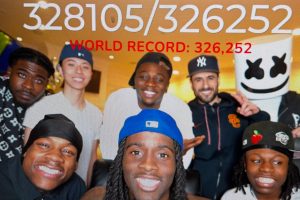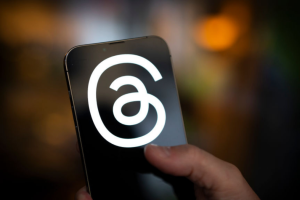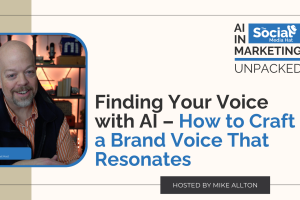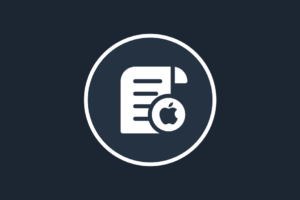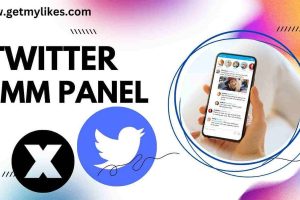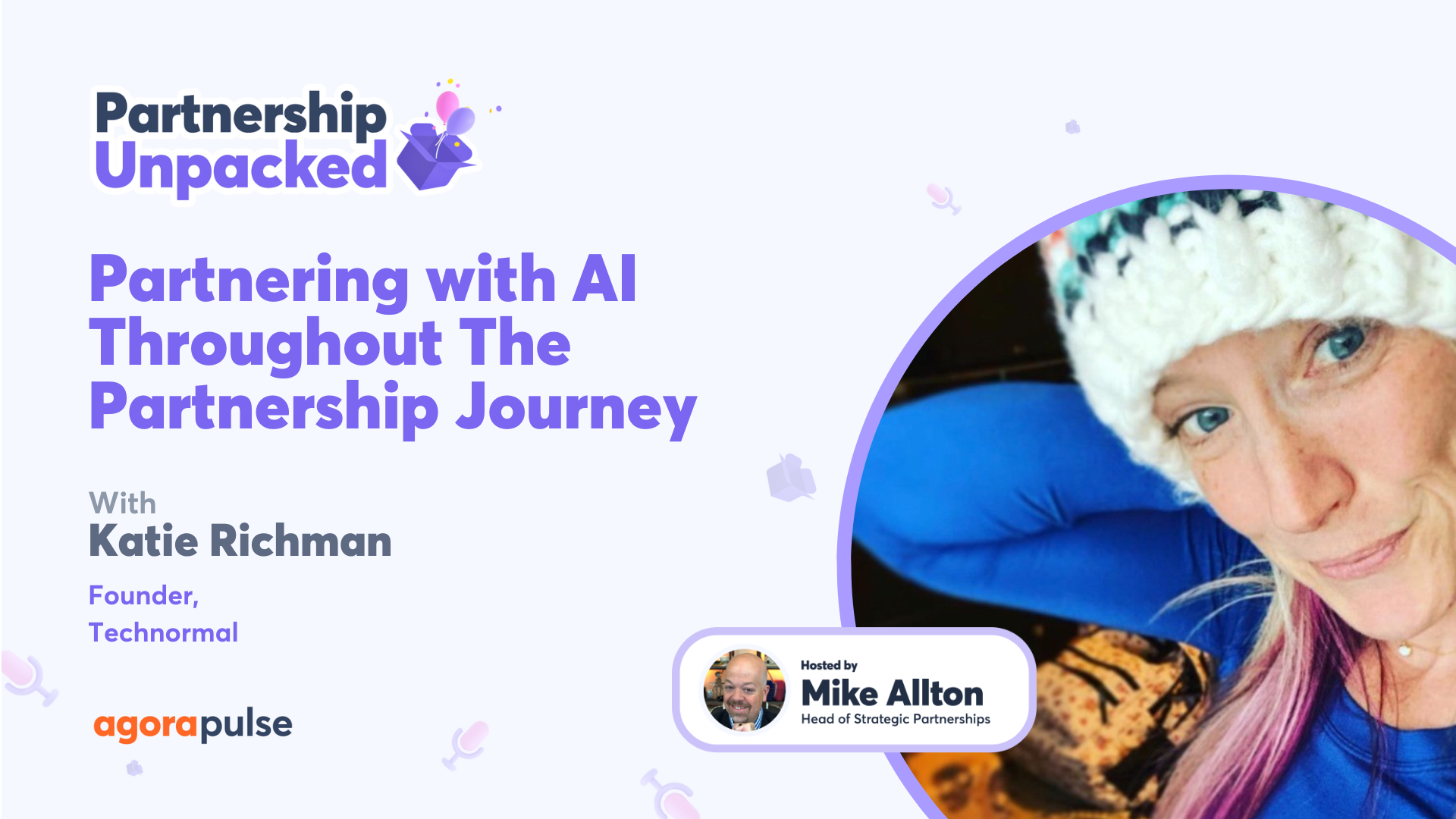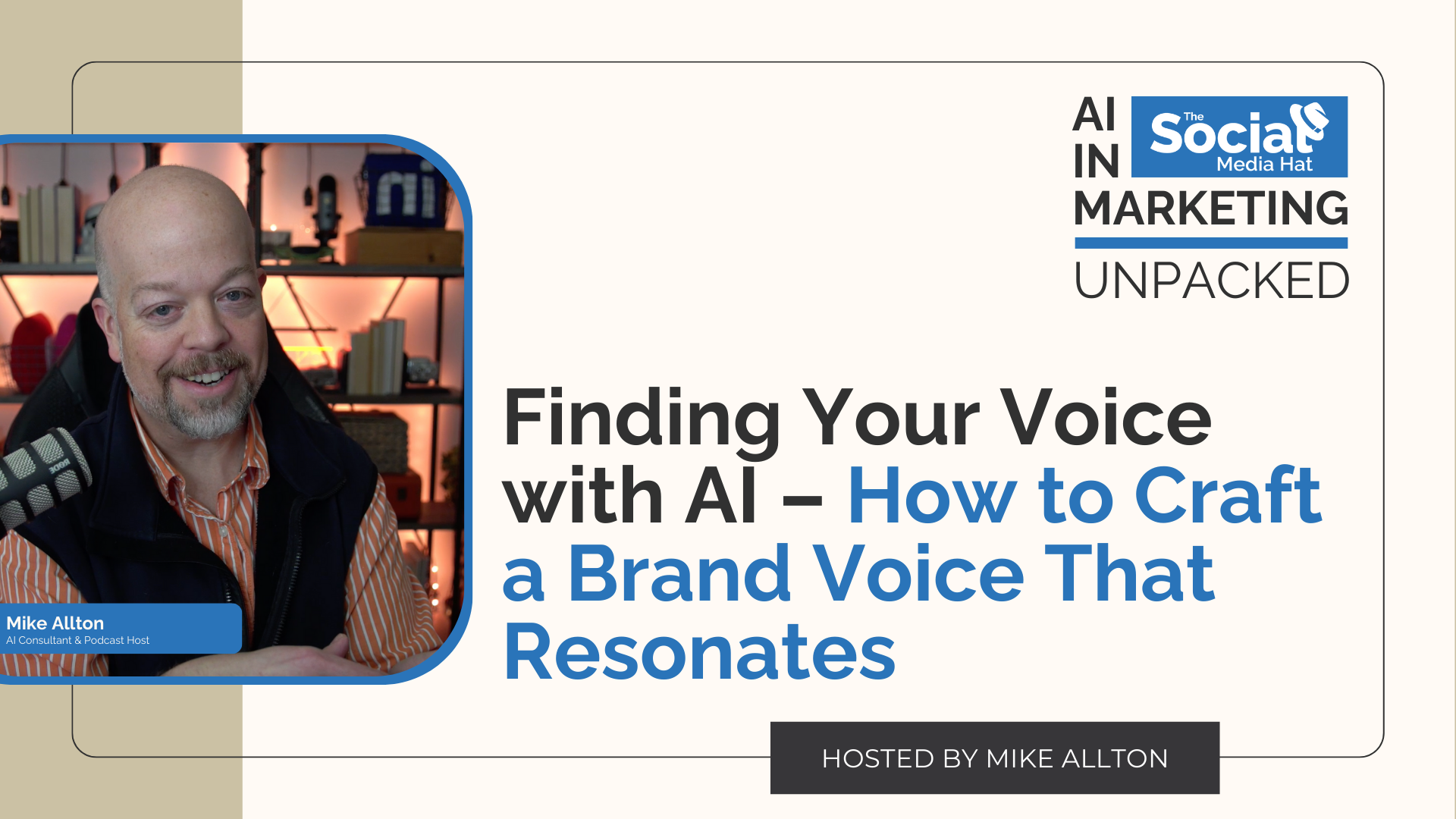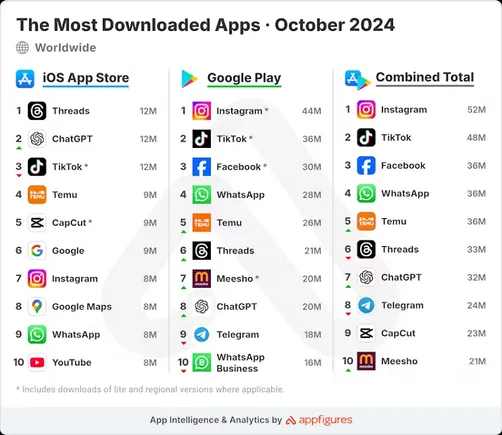Every episode of the classic Western TV Show, The Lone Ranger, started out, “With his faithful Indian companion Tonto, the daring and resourceful masked rider of the plains led the fight for law and order in the early west. Return with us now to those thrilling days of yesteryear. The Lone Ranger rides again!” And throughout the decades since, the concept of working alone has often been equated with being a Lone Ranger. And we’ve used that phrase here on this very show.
But it’s a bit of a misnomer, isn’t it? The Lone Ranger wasn’t alone, he had his friend and colleague Tonto with him to help.
Tonto wasn’t a Ranger of course, but having a resource to turn to who at least has some understanding of our world and environment can be a real asset. It can help us lone partnership heroes feel less isolated, and give us additional avenues of research and brainstorming.
Can AI be that kind of faithful companion for us today?
That’s what we’re covering in today’s episode of Partnership Unpacked.
Welcome back to Partnership Unpacked, where I selfishly use this time to pick the brains of experts at strategic partnerships, channel programs, affiliates, influencer marketing, and relationship building… oh, and you get to learn too! Subscribe to learn how you can amplify your growth strategy – with a solid takeaway every episode from partnership experts in the industry.
Today we’re in for a real treat, as we’re joined by one of my best friends and she just happens to be a brilliant expert in generative AI. And she’s going to help me, er… us… with the fact that many of us are operating as partnership department leaders yet we’re a team of one. We’re expected to foster new relationships, bring on new partners, spearhead new initiatives, and often do that across several different kinds of partnership types.
How can AI help us to be more efficient and feel less isolated?
That’s exactly what Katie Richman is going to talk to us about.
Katie spent decades at the intersection of content production, brand storytelling, and emerging tech at well-known brands like ESPN and Meta. She’s now an incredible writer, thought leader, and consultant in the generative AI space, conducting emerging tech workshops and coaching sessions for industry leaders and executives. She’s a tech optimist but a business operations realist, and we’re blessed to have her with us today to help us understand the power of generative AI.
Partnership Unpacked host Mike Allton talked to Katie Richman about:
♉️ Why partnership leaders should utilize AI in every aspect of their work
♉️ How AI can help with pitching and onboarding partners
♉️ Where partnership leaders can use AI for campaigns and engagement
Subscribe to the show calendar: agorapulse.com/calendar
Learn more about Katie Richman
Resources & Brands mentioned in this episode
Full Notes & Transcript:
(Lightly edited)
Partnering with AI Throughout the Partnership Journey with Katie Richman
[00:00:00] Mike Allton: Every episode of the classic Western TV show, The Lone Ranger, started out with his faithful Indian companion, Tonto, the daring and resourceful masked rider of the plains, led the fight for law and order in the early West, to return with us now, to those thrilling days of yesteryear, The Lone Ranger Rides Again.
Well, throughout the decades since, the concept of working alone has often been equated with being a lone Ranger, and we use that phrase here on this very show, but it’s a bit of a misnomer, isn’t it? The Lone Ranger went alone. He had his friend and colleague Tonto with him to help. Now, Tonto wasn’t a ranger, of course, but having a resource to turn to at least has some understanding of our world and environment can be a real asset.
It can help us Lone Partnership heroes feel less isolated and give us additional avenues of research and brainstorming. Can AI be that kind of faithful companion for us today? That’s what we’re covering in today’s episode of Partnership Unpacked.
This is Partnership Unpacked, your go to guide to growing your business through partnerships quickly. I’m your host, Mike Alton, and each episode unpacks the winning strategies and latest trends from influencer marketing to brand partnerships and ideas that you can apply to your own business to grow exponentially.
And now.
Welcome back to Partnership Unpacked, where I selfishly use this time to pick the brains of experts at strategic partnerships, channel programs, affiliates, influencer marketing, and relationship building. Oh, you get to learn to subscribe to learn how you can amplify your growth strategy with a solid takeaway every episode from partnership experts in the industry.
And today. We’re in for a real treat, as we’re joined by one of my best friends, and she just happens to be a brilliant expert in generative AI, and she’s going to help me, or us, with the fact that many of us are operating as partnership department leaders, yet we’re a team of one. We’re expected to foster new relationships, bring on new partners, spearhead new initiatives, and often do that across several different kinds of partnership types.
How can AI help us to be more efficient and feel less isolated? That’s exactly what Katie Richmond is going to talk to us about. Katie spent decades at the intersection of content production, brand storytelling, and emerging tech at well known brands like ESPN and made up. She’s now an incredible writer, thought leader, and consultant in the general AI space, conducting emerging tech workshops and coaching sessions for industry leaders and executives.
She’s a tech optimist, but a business operations. Realist and we’re blessed to have her with us today and help us understand the power of generative AI. Hey, Katie, so glad you’re on the show.
[00:02:47] Katie Richman: I’m in awe of this open. Hi, and I thought maybe I was your Tonto. I was like, so excited to hear what’s going on, but talk.
I was like, uh huh. Right, right. Love it. And all’s very true. All’s
[00:03:05] Mike Allton: very true. Yeah. Awesome. So, I know you have worked partnerships in the past. Can you tell us what kinds of partnerships you worked out, just because we kind of level set. I love to let the audience know, you know, why I’m talking to the guests I’m talking to because often they wouldn’t necessarily know them in their roles.
So what did you do in the past? And I’d love for you to just share a little bit about the consulting work that you’re doing today. Thanks, guys.
[00:03:28] Katie Richman: Yeah, amazing. So yes, if I had to say I’ve done one thing across 22 years of working, it’s partnerships. I worked in media for a long time. I was in production at ESPN, but then from there I was at the intersection of digital and live.
So anywhere that the product kind of met the live broadcast. And I was the director of social media. The first one there, I was like selling that concept in which I feel very old saying, but that the whole impetus, my whole kind of driving point internally was for people to think of how this could be branded content or partner driven.
Then I helped launch ESPNW, which the whole selling point to ESPN was untapped partnership opportunities with. Nike women or Lululemon, et cetera. So kind of on that brand side, I’ve done the media partnerships. I then went to Metta to work in partnerships, running developer programs. So working with the API, the graph, and then our most important news, sports, entertainment, music, social good.
Partners, the list grew as I was there for a while, then I bounced to the new product experimentation team and I led global partnerships. So that’s the incubator that Metta had. They no longer have it, but Google has one too. We had 20 to 25 incubated projects going at any time, and I was helping those founders globally connect with partners.
It was very startup y, platform partners, media partners, and then I left and kind of branched out to focus on AI and emerging tech. That’s been my passion for a long time, but tying that down to day to day business operations. And so when I think of partnerships as well, I’m always thinking about what’s the win win, how are we quantifying this, that sort of thing.
I now blog about AI and emerging tech and we’ll put up it’s medium. com slash tech normal. But I really kind of, it’s for people outside of Silicon Valley and it’s supposed to be not jargony kind of talk. And then I work with usually senior level executives outside of tech and. Work kind of coach them through the process of figuring out if AI or any other emerging tech is a fit based on their quantifiable business goals.
So really moving the needle on something I’ll stop there. So you can see I’m sort of a Renaissance woman.
[00:05:52] Mike Allton: Yeah, no, it’s fantastic. It’s so fascinating. And for those of you listening, I have been so impressed with Katie and her grasp of these emerging technologies. I even had her come with us to the marketing AI conference in Cleveland, Ohio, a few months ago, and just be with me in the booth as someone who knows about AI.
Cause I really don’t, I consider myself an absolute novice. And one of the things that I found particularly interesting, Katie was. The way that you view AI, the way that you think we should be using AI, it’s super interesting and unique. Could you just kind of help people understand, we should think about AI?
[00:06:29] Katie Richman: Okay. I’m not going to say everyone should think of it, but I would say if you just feeling like you’re not quite understanding. Here’s what I would try. I’ve narrowed down. It’s there’s way too many platforms right now. So if you’re going to get started, I’m on Chat GPT. I tend to think while all the models are doing different things, you’re safe on chat GPT, knowing that you’re probably getting the deepest best quality answers.
I would say. There is that 2021 cutoff on time. But other than that, when you’re thinking of building strategies, business plans, that sort of thing, it’s definitely where I would start. I treat GPT like a business partner. And that’s not just saying that as a metaphor. I really, I speak to it. I’ll say good morning to chat GPT.
I really treat it. I also have a startup I’m bootstrapping, but we call it the fifth founder. There’s four of us. And then this is our fifth founder. That’s how I think about it can be lonely to be a consultant, a freelancer, or the boss where you have a team looking to you for answers, especially if you’re in marketing.
I think people assume, you know, know it all and yeah. And so I’m working, I work a lot on what would it mean to. Work with chat GPT on things like partnerships, but I also treat it like a partner on my team.
[00:07:49] Mike Allton: That’s fascinating. And of course, that’s why I was crazy here today, you know, because this is, this is the way that you’re using AI extremely effectively to the point where It’s a co founder of your new business.
Tell us more about that real
[00:08:04] Katie Richman: quick. Yeah, absolutely. So I have a startup called Loud Labs. My co founders and I are working on a geospatial recommendation engine. So, you know, when we go on Tik Tok, we have, we know that the best. Content for us is coming to the top based on all of those end points, but like in real life, we’re still digging around and we’re proactively walking around like zombies.
So I’m working on how do we combine geolocation. AI and some other mobile AR elements, but no glasses really meant to preset a bunch of rules and put the phone in your pocket. And as you walk around the world, kind of the tech works for you again, letting you know if there’s hidden content there or something you might’ve missed deals and offers that sort of thing.
But it’s really overwhelming. I’m the CEO, you know, we’re a scrappy team. There are people who still are working 40 hours a week and then doing this on the side. So I’m doing a lot of work on my own, which just makes sense, but so I’m building pitch decks. I am reaching out to potential partners, talking to VCs, and I don’t come from tech.
You know, I was an English major in school. I come from the business slash media entertainment world into tech. So it can be overwhelming. Sometimes feel out of my league. You get that imposter syndrome that everyone talks about a lot. And for me, it just mentally, I feel so much. More prepared for meetings.
I’m going into or just confident in my decisions as a leader when I’ve run through these things with an intelligent thought processor, which it really is. Once you learn kind of how the parameters of how to ask a question successfully treating it like a human is It’s almost like we have to unlearn how we talk to Google, Boolean search and some of the things we take for granted and get back to how we speak to other people.
[00:09:58] Mike Allton: Now, we’ll have the links to your blog and your startup and everything in the show notes. So as those of you, you don’t have to rush to figure that out. Now you can click through when we’re done, but I think this is just fascinating startup idea. I mean, It’s this concept where your target audience can be walking down the street in front of your in front of your store, your shop, your location, and be informed of things happening in and about your business that directly relate to them.
And I love film and industry. So I’m often comparing things that I see or hear about to film. So I’m thinking of actually minority report. Well, no, no, no, in a very good way, in a very good way. Because there were a couple scenes where Tom Cruise was walking Through like a mall area, and he was being talked to by hologram advertisements for the different stores, and they were calling him out by name, and they were saying things to him based on their past information.
[00:10:54] Katie Richman: I, I, I, I started my blog actually as a response to The metaverse and the direction meta and big tech was taking the metaverse. You know, I, I had a real, you see things like the Wendy verse. I’m like, is this, are we back to Yahoo mini games? That’s not a knock on Wendy’s. That’s just someone had to be first, but to me, that is not what the metaverse.
Was these like avatar driven platforms to me the metaverse is the convergence of our real, you know, we say our online lives and our real IRL our real lives. I don’t think they’re going to be saying that in 10 years. I think this is all part of life. And I just want to get back to prioritizing. My default life, as they say, but acknowledging, I don’t want to lose the tech, you know, I sit between generations, so I see the value of unplugging.
I also see the value of just having at your fingertips, a lot of tools right now, we have so many tools that we’re. Amazed by them all the time. And we’re, we’re not living where we are a lot of times. So, you know, you think about things like, as you and I approach each other, what could you do with location?
And I’m forgetting your name at a conference. If I can get a haptic or in my ear, you’ve also opted in. Right. And as our circles. Converge and we get 10 feet away and be like, Mike Alton, you know, him from Agorapulse and you know, whatever note you left for yourself or using the LinkedIn, anything that can be driven by who you are, where you are and the context, right.
And when it is basically. So if you and I went to a concert or a festival together, say you had paid for a VIP ticket and I didn’t, you’re going to get different audio overlays, alerts and haptics with. Say flash opportunities, say, you know, at the last minute they opened up a VIP lounge and it’s, you’re passing it right now, or you get free beers at these stands.
I’m not going to say we’re not driving FOMO cause I don’t get those things, you know, it’ll make me want that, you know, as you could tell it, we could go on all day, but that is basically what it is. I’m all about getting back to humanity again. And that’s part of that spills into how I work with AI. I think a lot of us that come over from the humanities, right?
I think. There’s this divide with technology. I think this bridges that divide. And I think the marketers, the people driving business, it’s coming back around to these people are going to be in charge again, basically, it’s not going to be the engineers necessarily. That’s such a
[00:13:25] Mike Allton: great point. And I loved your example a moment ago of having that little bit of haptic or last minute information in your ear as you’re approaching someone at a conference or event.
Many of you listening earlier this year, you either went to Catalyst in Colorado or you went to Inbound and HubSpot, which were hundreds, sometimes thousands of people around you, many of whom You probably never met in person in real life. And so approaching somebody and the only information you have that’s in your mind that you could potentially work with is a tiny little LinkedIn headshot.
And that usually doesn’t work, but to have that AI assistant that’s telling you, Hey, it also
[00:14:02] Katie Richman: gets your head on your phone. It’s I pitched. So there’s a lot of different layers like that, where if you’re at a sports bar, say watching. a football game this time of year, college football game with your alumni.
You don’t want to look like a total dope, but you really don’t know anything about football. You know, can you have your AirPods in and watch the broadcast? And then as they say, you know, well, the injury, they’re like, well, that happened last week, you know, it’s Tom Brady. So that context, it’s like that sort of, you annoy your friends.
What just happened? What was so We call it hidden layers because it’s it’s hidden layers of the world and we’re all going to experience those things a little differently But hopefully together.
[00:14:41] Mike Allton: Yeah, so we want to focus today on Partnership leaders, you know those folks who are listening right now By themselves who [00:14:49] Katie Richman: might be listening to this podcast [00:14:52] Mike Allton: Yeah.
So we usually have CMOs, we have heads of marketing and in our largest audience segment, some influencer marketing folks, but definitely partnership leaders, people who are trying to drive partnerships in various colors and different brands, just like myself. Yeah. I got affiliates. I’ve got influencers. I have brand partners.
I have co selling partners, but it’s just me. I’m that little ranger I talked about. So we need help. We need people to bounce ideas off of exactly as you talked about. And as partnership leaders, there’s typically a natural progression, a journey, if you will, of how our partnerships and our relationships progress, and that typically starts with IDing, ideating, and researching.
And then it goes on to pitching, onboarding, campaign management, and then engagement.
[00:15:39] Katie Richman: And I’d say there’s even research at the top to align your goals. It’s the planning, right? A lot of our partnerships, I know the world comes at us really fast and they happen. You can’t plan from one week to the next sometimes, but I always have this dream that strategically, right, I could take my goals for the half, figure out what numbers I have to move, then strategically reach out to partners.
It never works that way, but it’s always good to have idealistic that arc, right? The research, the outreach, what is the value exchange, the work that you’re going to do? And then maybe there’s that insights recap. Best practices phase before you do it all again.
[00:16:19] Mike Allton: Yeah. So for those of you listening, hang on, because, you know, for the next 30 minutes or so, we’re going to walk step by step through each one of those phases of a partner leaders journey.
And Katie, you’re going to help us understand how to use AI in each one of those steps to bounce ideas off them, to help. Build strategy,
[00:16:40] Katie Richman: whatever their thought starters for everyone. We mentioned there’s 50 things that you could add to that list. There’s the visual parts of AI, but for sanity’s sake, I’ll be talking mostly about chat GPT because you can go all day. [00:16:55] Mike Allton: I was going to mention that. GPT, you could potentially use barred or even, you know, Magai Dustin South’s a good friend of the show. His Magai tool is amazing. You can use that if you want to, we’re going to go forward with chat GPT for simplicity. And let’s start with talking about ideating, researching, maybe even strategy.
How can AI help us with that?
[00:17:16] Katie Richman: Well, so maybe you can share my, I have a two part presentation. It was, it was actually around my con and we had it going in the booth. It was about brainstorming with chat GPT, right? So that whole concept of thinking of this as a person on your team, I usually kind of picture it as.
the brightest intern you’ve ever had, a really cheery, younger person with a ton of energy, but very little context. And so if you think about something like that, where you have a gifted, a gifted college student that you have to get like onboarded for the business, that is sort of how I approach A brand new chat GPT conversation, you know, early on with ideation.
So we will share those presentations because it really talks through that. But early on when it comes to ideation, I really try to get clear. The one thing I do by myself, because chat GPT can’t do this is even if you don’t have specified business goals for the half, I would really try to write. Down.
What are you trying to do here before going through this process? So you’re brainstorming, but a lot of times it’s really easy. It’s a campaign. You’ve got an event you’re working towards something like that, but having some clarity on that, or the world just gets too big. First step is giving context. So I will go in.
And like I said, I have that mental picture in my mind of who I’m. Talking to, there’s a lot of little tricks we’ll talk about, but one thing that’s important to know is that, you know, people talk about prompts and that’s sort of the back and forth chat that you have with a chat GBT one prompt is like if you had said one sentence to someone and walked away.
Right. We’d all kind of give this face. What told me more prompts are meant to be bundled together. I would think of it more like a conversation with each prompt being you kind of driving that conversation forward. So I will say, and here’s the overview. I have a partnership with. L’Oreal for ESPNW’s summit, which these were like actual things I worked on.
Here’s how much money we have for a budget. Here’s L’Oreal’s goal. It’s to build their Facebook community. Here’s ESPNW’s goal before we approach the client, I want you to act as if you are the world, and I’ll say something ridiculous, like the world’s. Most creative partnerships expert, or if you’re going to do an event, right?
Event partnerships expert. I’ll ask it. I’ll give it the context and then say, before I go to, to reach out to the partner, what are five to 10 unique, creative out of the box concepts and you kind of prep to brainstorm. With a partner, because even if you’re brainstorming with your team and Mike, you probably know this too, but you do want to be prepared to go into that conversation.
So I think before you even talk to your team, you can have chat GPT in your office with you kind of getting your own thoughts together. Yeah,
[00:20:15] Mike Allton: absolutely. First of all, I love that you’re reiterating the fact that you’ve got to be specific. You can’t just say, give me some strategy for partnering and expect.
Anything worthwhile. You’ve got to set those guardrails. This is, this is who I am. This is who i’m treating you as this is what I want to
[00:20:31] Katie Richman: accomplish with people and I think Then we go to a computer and the rules have always changed going back to having to write DOS and, you know, working with, sorry, I’m old, but yes, since, since then, and then it was HTML and giving commands and all of that.
What if you didn’t have to do that, but the rules that apply to convincing people or inspiring people or driving people’s creativity, the same rules apply to this new tool. And it’s almost like we’re rediscovering how. Or discovering a new way to talk to computers. And it’s our initial way. It’s the way we are good at already.
And so for non tech industry leaders, I usually tell them like, you have this already. You’re, you’re in the position you’re in because you’re a leader. You’re inspiring on some level you’ve shown industriousness and creativity. Now, just the way that you inspire your team or work with your team. How would you give this as an assignment to someone on your team?
What would you say? Or if you pulled them into a room for a brainstorm, what would you say? I give it as much structure as possible. So that’s why I said five to 10. You can do whatever you want. I give it, I wouldn’t give it more than 50 choice. It will do. If you say, give me a thousand ideas, I think it’ll stop somewhere and go, be sure.
Cause of all the GPS to do that, but you could, and. The first round, it’ll come back. So let’s go back to the L’Oreal and ESPNW thing. It might say, you should do a social photo booth, whatever, among the ideas. Usually the first pass is not creative enough. Just sometimes like working with people, the first pass in a brainstorm is the obvious stuff, right?
You’re getting through that to the next layer. I will come back and say, these are To expected. These are I’m presenting this to marketing experts. They’ve done it all and seen it all. What will they not be expecting? What? What’s groundbreaking? What’s creative and outside the box. And then the second or even keep doing that until it comes through.
You will get more and more refined answers. The more specific you are to your industry and the partner. The better it’s going to be if you’re talking about reaching out to say an influencer, pitch them on a partnership. Why can’t you go on Google and pull up their Wikipedia or I’m not up on all the creator tools like Mike is, but pull up basically a bio material that explains who they are and then say, how would you pitch this person knowing their goal is to grow their TikTok follower count by whatever it is.
Cause I always approach partners thinking about what they’re trying, what they’re probably trying to do.
[00:23:20] Mike Allton: Yeah. That’s a hundred percent. Right. And if we’re talking about brand partnerships, that’s even easier. It’s so much easier. Wikipedia is fine for finding, you know, some basic information about a particular brand that you partner with.
I was chuckling when you talked about DAWs because that’s actually a really interesting and HTML in particular. If programmers are coming at this idea of prompting, it is exactly the same as if you’re building a web page because the HTML code in the back is setting guardrails and framework for what this web page is going to be.
You have to open it up with HTML and header tags and body tags,
[00:23:59] Katie Richman: so that there’s, yeah, you’re framing the job. We say job to be done right in tech, but the business problem, the goal of the partnership. You know, and that can be really, what are you trying to do? And I think a lot of times when I’m working with partners, I always think what will make them look great to their boss, you know, and it’s probably over indexing on their goals, doing something unexpected.
But in that same way, you know, clarifying the goals around what you’re doing, trying to do with a partnership before you brief in anyone is, is a great idea, but you can use, say you didn’t even know that yet. I don’t even have the goals I have. I know I have to do this thing. We’re going to be at CES, but, uh, don’t know what to do.
I will go to Chachi BT and say, we’re going to be at CES for the fifth time. Um, we’ve done this, that, and the other, we set the goal last year of increasing our booth attendance by 10%. It’s busy. What, what could we do that will draw people without costing more, um, be idealistic, you know, um, and then keep reframing it and tightening up.
The problem, because they might say things like you should rent a helicopter, right? And fly a sign over the whole place, right? I mean, and you will get it practice more practically. The more you tell
[00:25:13] Mike Allton: it drops the Melvis impersonators. And now you’ve got something that’s really interesting [00:25:17] Katie Richman: happening. Well, it’s funny because people say about AI, um, the paperclip problem.
Have you heard that one? It’s sort of, it’s sort of the argument for, um, no, the people that are like, we need to worry about AI being conscious. Um, you know, or, or letting it out of the box, they’ll use the paperclip problem, which is these are, it’s a computer treating as a person, but if you give it a job to be done, there’s nothing stopping it.
It won’t sleep. It won’t eat. So the paperclip problem is like, we want to make, we want you to figure out a way to make more paperclips. It’ll go as far as to like. Fire everyone from their jobs and put them on paperclip duty, right? Start smelting like the Eiffel Tower, I mean, like, whatever! Paperclips, there’s no limit.
So, you know, when we ask it for ideas, just remember it’s kind of a bottomless pit of of creativity and desire for you to get what you want. And if you’re not happy, just keep going back at it. But don’t keep going back to the same thing. You need to, if it’s not quite hitting where you want, you need to try and point out what’s wrong.
Just like giving feedback on a
[00:26:21] Mike Allton: creative project. Exactly. Feedback. Tell it what you liked, what you didn’t like. So We’re using chat GPT. We’re, we’re helping it to understand who we are, what we want to accomplish. We’re help using it to create strategy, to ideate, to brainstorm. And you mentioned pitching.
Was there anything else that we can use specifically to help pitch? Like you talked specifically about telling chat GPT, who are the partner leaders or the brands that we want to partner with? This is who they are. And what do we get out of that?
[00:26:47] Katie Richman: Right. And so I will do. And I’m not telling anyone how to prep for meetings, but I would absolutely tell it who the brand is.
Give it a couple paragraphs on that. If you’ve got a meeting and you’re going to be meeting with kind of a major business leader, I will also do that where I give it’s a lot of times I’ll do people’s LinkedIn about section because that’s in their own words, you know, versus Wikipedia, sometimes not in their own words.
I will say, here’s who, if you think about like a reporter, the who, what, where, when. And why who you’re meeting with what you’re trying to accomplish, which is selling them on doing this partnership, most likely go to CES with us and we’ll in the booth. We’ll do something big referencing. I think what their goals that you what you think their goals are going to be.
And then having Chachi PT help. You actually fruit with that pitch meeting. So once I get the creative kind of concepts, so say it gave us three or four ideas or working together on that brainstorm, you end up with three or four ideas. You really feel good about going to the client with you set up your meeting.
You can then keep that thread open on chat GPT, I would, I rename it, you know, it’ll be like the CES partnerships thread or whatever, and then go back to it and say, okay, so remember what I always say every morning, remember what we were talking about. Yesterday and rephrase it and then it’ll say, yes, you have this upcoming partnerships meeting.
If you get back to it within a regular amount of time, it does remember from day to day what you’re talking about, but I always still encourage it to refresh itself. I would say that meeting is tomorrow morning. I want to be buttoned up and send an agenda. We have an hour and a half. How should we structure this meeting?
It will literally say it starts at three, it ends at four 30 go. It will write an agenda, which you’re going to refine, of course. And yeah. And so you can use it for your operational needs to like the order you could meet with partners based on everything. It knows the actual operations of the meeting, given your goals, how you would, I’ll say, what’s your gut instinct on the prioritization of these three ideas.
We’re not taking all the ideas. We’re just asking it for feedback. It’s funny that you say gut, you know, what’s your gut instinct? And it doesn’t stop to say, I don’t have a gut. It’ll, it’ll give me, I don’t know who it is and why I’d take advice to have, you know, this chat thread, but no, it will, if you ask.
[00:29:18] Mike Allton: Awesome. So. We are using that same thread. That’s a little bit of tactical advice. I want to make sure that everybody picked up on. You don’t need to start a new chat for every one of these questions. I wouldn’t. Keep using that same thread. And Real quick, I’m going to take a quick break because I want to share with you what we’re doing with AI at Agorapulse.
Hey there, Daryl Praill, Chief Marketing Officer here at Agorapulse, the industry’s best social media management platform. I got to tell you, I love AI. Why? I don’t view it as a threat. Rather, it makes me better. It’s a colleague. It’s a collaborator. Let’s see. I do a social media post, but you know what? I’m a little long winded.
I want it shorter. Maybe I want it longer. Maybe I want it punchier, more assertive, more inspirational, more funny. That’s what our writing assistant does. Check it out. Agorapulse. com.
[00:30:09] Mike Allton: So isn’t that cool? That’s a fun little feature, which of course you can do that with ChatGPT as well. Just Agorapulse makes it a little easier because it’s right there in the tool. And creative [00:30:19] Katie Richman: writing is one of the things like. People have been playing with since the beginning and we still have to babysit it a lot.
It’s getting better, it’s sort of out of our hands. So I don’t even really talk about like the actual producing the creative. This is all around. It’s like the convincing, the selling, the partnering, the measuring, all of that. So,
[00:30:42] Mike Allton: right. So let’s, let’s take this journey further, right? We’ve strategized, we’ve ideated, we’ve researched, we’ve pitched.
Let’s say we’ve won that pitch. We’ve got new partners coming on board. So onboarding is the next step in the journey. How does AI help us with onboarding? What are a few ideas there? I
[00:30:59] Katie Richman: think having an idea of. Where you are with your business. Some people have really buttoned up onboarding flows. Like actually I know Gore Poltz does every time we do a podcast.
It’s just, there’s definitely like an onboarding flow. That’s really great. Other places or partners you may, this might be the first partnership that you’ve done or the first with a creator, and you may not yet have those flows built. Let’s go with the one where you don’t have an onboarding flow yet. I would really kind of just like we did with, um, creating an agenda.
I keep chat GPT up to date on the status. So I would say I’d go in and say, Hey, great news. We won the partnership or whatever. We won the pitch where we’re
onboarding these new partners. I’ll say things like, I don’t want them to know I don’t have a buttoned up. Onboarding flow, pretend you are like, you know, at, or act as my right hand and write an onboarding so you can get it. And I’ll get it. I do this with project management all the time. Maybe there’s a top sheet.
That’s like, it’ll say like, here are the going to be the five steps, right? I’ll say, break that down further. What’s step one. What’s step two. Now write something I can give to the partner in an email. That I can just cut and paste, but by, by not just jumping into the email, right. Not just going to chat GPT and saying, write me this email.
And it doesn’t have any context. It doesn’t know you’re doing a partnership. You were pitching that you want it now that thread does know that. And it’s kind of helping you build the, the infrastructure for the partnership. So it’s very in, in the loop at that point.
[00:32:39] Mike Allton: Right. And so the common thread throughout so far is that particularly for things that we may not have done before, or maybe haven’t done well, chat GPT can come in and give us that guidance that we don’t have a teammate.
We don’t necessarily have a mentor. Maybe you can’t afford to drop a couple grand on a membership or a course. Maybe
[00:32:59] Katie Richman: you’ve never done this. Maybe you’re in a new career You’re in a brand new job. You’ve never been the one sitting in the office alone. Everybody wants to look great, but you don’t want to go ask always.
Once you learn, if your company say they don’t, there’s no onboarding flow. We don’t have any. What is an onboarding flow? You, you know, that’s when you would go, I want to wow everyone with this new structure. How would you do it? You’re not promising anyone. You’re taking all the advice. It’s all the things that are feel like a book report, right?
Writing frameworks, agendas. Business documentation, a lot of that stuff is the stuff I procrastinated on, I don’t know about you, because it requires a lot of thought, a lot of untired brain, right, to think through brand new processes, and so, for me, this gives me something on a page. It set up an agenda, it could be entirely wrong, but I have an agenda now, right?
And I can cut and paste and make it what I want it. But I do a lot of like write this so I can cut and paste it into a Google doc.
[00:34:02] Mike Allton: And relating to this so hard, because when I first started with Agorapulse, almost six years ago, I was brought in strictly for influencer management. I was running our ambassador program.
And then later I took on our affiliates and then later I took on virtual event management and bringing in partners. And that became. Brand partner
[00:34:21] Katie Richman: program. You also helped build a lot of these things, [00:34:24] Mike Allton: right? Right. So a lot of it’s just starting from scratch and me inventing for myself, how to do these things.
I’m now implementing an entire near bound co selling initiative within the company. And here we’ve invested in me going out and getting tools and guidance from other sources and brands, but it’s still me creating this
[00:34:44] Katie Richman: from scratch. And is this one of the things, Mike, you and I were talking about. When we were together last, but having a career nowadays is very much like you’re in almost like a business under yourself where you show up on the job.
I mean, people who have decades of work experience, we do this intuitively. We bring in our tool sets, right? We bring in our product management timelines are ways we manage events. That’s sort of one of the ways I got. Some of my jobs in the past was showing them like, well, here’s my process. And I like, sometimes I get up like for the job interview.
Here’s what I always do on projects. Right. Right.
[00:35:24] Mike Allton: Call it a framework. And it sounds like you’ve [00:35:26] Katie Richman: been putting framework. Exactly. I’m with you. I’ve done so many new product and new marketing things that I feel like I’m doing everything once. For the first time, and this at least, even if we have 100 different, we’re not just doing partnerships.
Now it’s a product or creator. You’re slowly building up your library that you will take with you when you go of how to do product partnerships, creator partnerships, programs. I’ve built a lot of programs that happened once, but you know, it’s like you don’t think of it as it doesn’t have to be thought of as sunk cost because you’re building your personal library of materials.
So, and then take it out of because God knows things are moving so quick. Cut and get down. You can download all your data. Um, I usually just paste the conversations into a Google doc. So I have that no matter where I
[00:36:15] Mike Allton: am. Such a terrific point. Yeah. I do the same thing. I use Evernote. Cause I’ve got that on my phone and on my laptop and everything.
Yeah. Just copy and paste and don’t lose track. Yeah. So the next step is we’ve got our partners on boarded. Now we want to start running campaigns with them. How can we use chat GPT to help with campaigns? Can I ask
[00:36:34] Katie Richman: you? Cause this is where I get out of my, like, I don’t do a lot of, if you’re talking about like ad campaign work, tell me what a process, what would that normally be once you’ve on boarded the part?
What are the steps? Let’s
[00:36:43] Mike Allton: go through together. After we’ve decided together on the kind of campaign that we’re going to do, then we’ve got to figure out who’s going to do what. [00:36:51] Katie Richman: What’s an example of a campaign? Can you give me an example? I don’t want to put you on the spot, but like, what’s an example? [00:36:56] Mike Allton: No, no, yeah.
A campaign might be like, we worked with HubSpot late last year, and we co authored a revised edition of one of their e books. So we had this massive document. My team was responsible for several chapters. I went and outsourced to Jenn Herman as an influencer,
[00:37:10] Katie Richman: because there’s a book about it. Campaign is It’s like a project with an ND and a deliverable basically.
Yes, exactly. Because people call things different things in different, in different spheres. So, and so now we’re going to work, what was the exact question now that we’ve had them onboarded?
[00:37:27] Mike Allton: Yeah. So now that we’ve had them onboarded, how could AI, how could chat GPT help us in this phase where we’ve got a campaign that we know we need to work on.
But to your point, Maybe I’ve never worked with another brand before on a project like this.
[00:37:42] Katie Richman: Okay. So this is so perfect. So my startup loud labs, we just got into an accelerator, which is really exciting, but it turns the heat up on me. We got in like a week and a half ago. We have a kickoff tonight. I need to know my stuff and I’ve had lab labs.
We’ve been bootstrapping for over a year, so we’ve pivoted. There’s been different features. I need to be up on all of that. Know what we’re trying to raise, how the money would be spent. All of that. I’ve never built a startup before. I’m not a software engineer, so I’m. Coming at this and I have a team, but we’re spread out and as a CEO, this falls on me largely.
It’s really about me feeling prepared and having my pitch deck ready to go. So I’ve been working with chat GPT, calling it the fifth founder. And we work every day on getting revisions. It wants to make to my decks and materials, but more importantly. We have 12 weeks and then we have a demo day. So I started 12 weeks and I started on Monday and I had it write me a 12 week timeline, right?
Based with milestones. So first, just like a, let’s pretend this 12 weeks starts Monday. How would you break it down? And it knows by now what I’m trying to build. I’ve already talked to it about what we’re building in those 12 weeks, what we want to demo and get out of it. So that work I had already put in.
Before we were even talking, but my big thing is driving my team forward on a day to day basis and myself knowing in a moment what I need to do today because we have day jobs. We’re all juggling a lot. And when you have an hour, you forget sometimes where you are. So overview of your timeline. Mile key milestones and deliverables.
This is stuff nobody likes to do, right? I have it do that. And then it stops and we make sure that’s right. Cause you don’t want to go any further. If that’s not, so we did that. I tweaked a couple of the weeks. I didn’t understand. We flipped a few things around. Then I had it take that 12 week timeline and break it down into a punch list for my team.
So I’ve, I’ve explained my team I’ve given their about pages. To our fifth co founder. So it knows everybody’s jobs. It knows that I’m doing forward facing stuff, the decks, getting partnerships. It knows that my technical co founder has to build this or hire people to build it. There’s an events and marketing person and an operations person on our team.
So given those four areas, What are each of our to do’s each week? So I’ve agreed now on each week. Now it wrote literally a to do list for each partner. And yeah, now before I went any further, I obviously went to my team. I did three weeks and I was going to do the whole thing. And then chat GPT said to me, don’t you think you should take this to your team before we go any further?
Can you believe that? I was like, okay, founder. Yes. You’re totally right. That was bad of me. I should bring it to the team before I go any further. So I did. So everybody has knows what they’re doing this week. They know. And I said to them, like, I’ll do this out for 12 weeks. It’s absolutely going to change, but it gives us an arc to work towards.
And I need that too. I needed to do list. The boss needs a to do list too, right? It’s not just about tasking other people. It’s like, what am I supposed to be doing right now?
[00:41:09] Mike Allton: That’s amazing. So it works for projects just as much as campaigns. That was jaw dropping. Here’s our team, here’s what we’re working towards.
And I’ve even heard you say you could use chat GPT to play devil’s advocate.
[00:41:21] Katie Richman: Oh yeah, so I blogged about this a little bit, but um. So let’s say you were going into a meeting where the pitch was going to be trickier. Right? You’re going up against might even be when you work at a big company and there’s the head of this team and that team.
I’ll give you an example. Adam at ESPN when social media went from nobody cares about who’s eating a sandwich in Hollywood and then They all of a sudden, every, it was like everybody came back after one Christmas and they were like, it’s important and it’s mine. And so we had the marketing team, the comms team and the digital media team all sent up a purse.
It was like. It was an internal situation where you were going to have to be pitching a lot of people, a lot of things. So I would have to go to executives at Disney and teach them about this. Also, why to not be afraid of it? Why? And these are people that have been making TV for 30 or 40 years, like, you know, while respecting their opinions and their seniority, how to explain value to them.
And I wish I had something like this because I was Right? Like, nobody cares who’s eating a sandwich in Hollywood is literally something I heard a dozen times. If I had chat to BT, I could have gotten that as like, that’s a devil’s advocate answer, right? They’re gonna tell you these five or ten things. Or say I do one meeting, I get all of the things that that guy said to me that I wish I had been prepared for, you can prepare them all with your devil’s advocate ahead of time, have them poke holes in your argument, shot GPT, I’ll say poke holes in this right, come up against this like you’re a lawyer, and I’ll make a case and it’ll poke holes and then you can flip it to solve the problem, say now tell me, If it were you, how would you respond with your goal is to win this person over to make them the biggest believer of Twitter?
They get it more than anyone else, right? I wish I had that. It was very
[00:43:22] Mike Allton: lonely. I hope all of you are listening very closely because as partnership leaders. Maybe I’m just speaking for myself. I don’t think I am, but
it’s just, you know what I mean? It’s just as kids, right? I’m a bit of a fatalist optimist where I’m just going to go into every partnership, assuming this is going to be amazing and that’s good though. And the campaigns aren’t going to be amazing, and the partnerships aren’t always going to be amazing.
Our previous guest, one of them was Kate Scarrett from Calendly, and she made it very clear. There are certain times where you need to have the courage to say no to a partnership or a campaign idea because maybe it’s not the right time for you, or you don’t have the budget, or whatever. That takes courage, because any of us know, going into any kind of relationship, if we say no, the other person may not ever come back to us, and that’s okay.
That’s better than going into a partnership or a campaign that you shouldn’t have ever gone into in the first place. Sure. And destroying the relationship for sure. That’s where I think that devil’s advocate can come in and help us.
[00:44:26] Katie Richman: Or say that you, you know, every partnership’s different. You do a couple of great ones, then there’s a tough one, right?
We talked about this a little bit the other day, but having someone that you can say, I got these five responses, right? No one’s ever said this to me. They told me there’s the budget was bloated or whatever these things are. Let’s solve for these and not. To come back in an aggressive way to anyone that had something to say about your argument, but just Thinking it through and either deciding that guy has a point, right.
And I hadn’t looked at it that way. I have to be open to changing my mind too. It’s not just about selling someone else on everything, but knowing, you know, when I worked in the new product experimentation team, my boss used to say, we support mistakes. Just don’t feel twice at the same exact thing. So I think some of this stuff too is like, how do you get better for the next time?
[00:45:21] Mike Allton: Love it. Love it. Katie, this is amazing. I just have one more question for you. And this is the question, my favorite one. I ask this of all my guests. How important have relationships been to your career? [00:45:32] Katie Richman: My whole career that you heard kind of pinged around everywhere. Completely built on saying yes to opportunities and then fostering relationships.
And I have a dad that was a relationship is a relationship master. He’s retired now, but I remember going to a networking event once with me. And he said, that’s Pamela. I worked with her 10 years ago. Her daughter is Judy and she’s. You know, another son who’s in Bowdoin. He just, he knew all of these people and I got to see how much it means to people to, we’re so transactional nowadays that kind of people remembering your name, that you have kids, things like that, I think are super important.
And so I’ve tried to keep my relationships warm across the board, but I wouldn’t have been anywhere if it hadn’t been for people, every job I’ve gotten as them due to partners. Relationships.
[00:46:28] Mike Allton: Yeah, yeah, absolutely. You are so amazing. This has been such a fun, informative interview. We’re going to have the links to everything in the notes, but for those who really want to know where they can find you, where they can get more help and information from you, where should they go? [00:46:43] Katie Richman: Absolutely. Right now, I think the best thing is LinkedIn and I’m Katie Richmond. So linkedin. com in Katie Richmond. We’ll put that up as well. And yeah, and that’s, I’m just going to leave it at that. Cause I think that’s a great place to connect with me. And I, I do. I like connecting with people across different areas.
So feel free to reach out and we can talk more or anything I’ve referenced. My blog is also medium dot com slash tech normal. But yeah, we’ll put all that in the notes.
[00:47:11] Mike Allton: Terrific. Thank you. And thank you everyone for listening. I hope you got as much out of this as I did till next time. Thank you for listening to another episode of Partnership Unpacked hosted by Mike Alton and powered by Agorapulse, the number one rated social media management solution.
Which you can learn more about at agorapulse. com. If you enjoyed this episode, please subscribe on your favorite podcast player. Be sure to leave us a review. Your feedback is important to us. And if you want to be part of our audience during live broadcasts, take a look at our calendar at agorapulse. com forward slash calendar.
[00:47:51] Katie Richman: Until next time.

